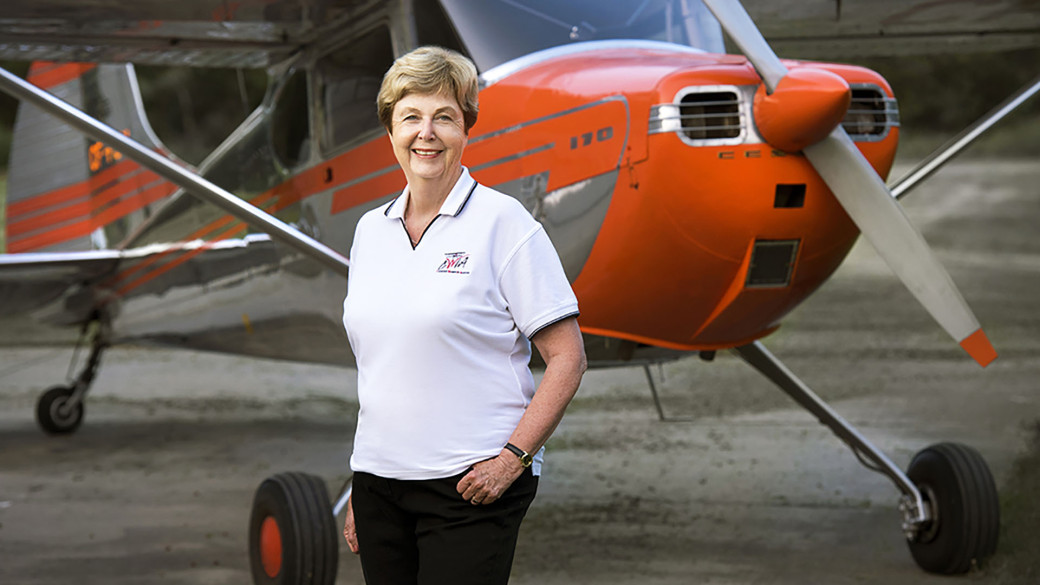Government mail service may be affected by the Canada Post labour disruption. Learn about how critical government mail will be handled.

"Live your dream. Do what you love. Cherish every moment along the way. Be brave. Take risks. Create your own happiness. Have an open mind and open heart. Make a real difference in the world. Set a goal that nobody else has achieved. Never give up. Dream big. Be fearless. Make every moment count and be flexible because sometimes your goals don't always work. You have to have another one."
Captain Rosella Bjornson is an icon in the field of aviation. An Alberta trailblazer, she is the first female airline jet pilot in Canada, as well as the first female First Officer on a twin engine jet in North America. Rosella paved the way for women to enter the world of aviation. Then she went on to enhance their rights by playing a pivotal role in expanding maternity leave benefits for female pilots.
Rosella Bjornson was born in Lethbridge in 1947, and raised on her parents’ farm near Champion. Rosella’s future became apparent early in childhood. While farm work was a clear priority, free time was often spent in the sky. Her father learned to fly after World War II and purchased a two-seat Aeronca Champ.
From the time Rosella was a baby, she was most at ease in the air; her mother told stories of Rosella falling asleep in her arms while in the back seat during family flights. Rosella’s passion for flying only intensified with age. As a toddler, she sat on her dad’s knee holding the controls of the Aeronca.
While her dad taught her many of the technical skills required to become a successful pilot, he was also a positive role model who instilled confidence. As the oldest of three sisters, Rosella was expected to help out on the farm, often taking on roles and responsibilities not typically assigned to a young female. Rosella handled tractors and other farm machinery, and did so with her father’s support and encouragement.
When the time came to discuss career options with her high school’s guidance counsellor, her decision had already been made. Unsurprisingly, Rosella wanted to pursue life as a pilot - despite the fact that there were no female airline pilots in North America. The guidance counsellor was initially stunned by her unusual plan, but by the end of their conversation, was encouraging her to put everything she had into achieving her goal. On that front, Rosella was already moving full steam ahead.
Much to her surprise, formal flight training began on her 17th birthday. The family drove into Lethbridge for what seemed like a typical shopping trip. But instead of stopping to get groceries, they drove right through town to the airport, where Rosella went for her first official flying lesson at the Lethbridge Flying Club. Thirty-five hours of flight time with an instructor were required to earn a private licence. Rosella accomplished this during the summer holidays between Grades 11 and 12. She was one step closer to a career as a pilot and she wasn’t going to let anything hold her back—particularly her gender.
Rosella believed that if she met or exceeded every potential employment requirement an airline would have to hire her eventually. Air Canada told her they preferred to hire university graduates. So in 1966, Rosella enrolled in the University of Calgary’s Bachelor of Science program, majoring in geography and geology. During summer breaks she continued to fly, earning her commercial licence and instructor’s rating.
After graduating in 1970, Rosella moved east to become a flight instructor for the Winnipeg Flying Club, knowing that being an instructor would help her build the experience required by airlines. In 1973, after being passed over by several airlines, Rosella’s determination paid off when she was hired by Transair. In addition to serving as a stepping stone in her career, Rosella’s time as a flight instructor was also a milestone in her personal life. It was during this time that she met her future husband, Bill, also a pilot, at the flight school. Rosella and Bill wed in 1977.
When hired by Transair in 1973, she checked out as First Officer on the F-28, a twin engine passenger jet, becoming the first woman to fly as a First Officer on a jet in North America. In 1980, after Transair was purchased by Pacific Western Airlines, Rosella transferred to Edmonton where she became a First Officer on their fleet of Boeing 737 jets. In 1990, she upgraded to a Captain with Canadian Airlines, becoming the first female Captain on the Boeing 737 in Canada. Later in her career, airline mergers saw her flying for Canadian Airlines International, Air Canada and Zip. During this time she was a member of the Canadian Airline Pilots Association.
Rosella feels that she has always been treated with respect by her peers, but also recalls the surprise of passengers and air traffic controllers when they heard a woman’s voice coming across the PA system or the radio.
Rosella had 18,000 flying hours under her pilot’s cap when she retired in 2004. Over the years, there were many flights that stood out as being special. On one of her first flights, from Winnipeg to Churchill and then on to Whitehorse, her parents were on board, and were amazed at the northern lights dancing across the sky. They beamed with pride as they watched their daughter handle the big aircraft. Those northern routes were some of Rosella’s favourites, as they gave her the opportunity to fly more independently than in areas with heavier traffic. This reminded her of what she loved so much about flying.
Not only did Rosella break into a male-dominated field, but she made it a better place for the women who followed in her footsteps. When Rosella was pregnant with her first child, she was placed on immediate personal leave instead of sick or maternity leave. When, several years later, she was pregnant with her second child, she worked with Transport Canada to loosen the rules on flying—as a pilot or passenger—while pregnant. As a result, the rules were changed so that women could fly, under a doctor’s supervision, right up until their last trimester.
In many respects, Rosella doesn’t treat her accomplishments as anything out of the ordinary; in her mind, she simply set her goals and reached them. But she has certainly blazed a trail for female pilots, and still actively encourages women to consider a career in aviation. She remains involved with the Ninety-Nines, a women’s pilot organization that boasts Amelia Earhart as its first president. She has served Canada’s Aviation Hall of Fame as Secretary/Treasurer and administrator for 10 years as a volunteer. She is also involved with the Canadian Women in Aviation, Women in Aviation International and Elevate Aviation - which promotes aviation as a career choice for women. Rosella is also a member of the Alberta Aviation Council, International Flying Farmers, International Society of Women Airline Pilots and the International Cessna 170 Association.
Her efforts have not gone unnoticed. In 1985, Alberta Career Development and Employment featured Rosella on its “Dream/Dare/Do” poster, created to inspire young students. Rosella is an inductee in Canada’s Aviation Hall of Fame and has an Order of Flight Companion from the City of Edmonton. She has been recognized by the Women in Aviation International Pioneer Hall of Fame, the Ninety-Nines and the Western Canada Aviation Museum. Rosella has received the Northern Lights Aero Foundation Elsie McGill Pioneer Award, the National Transportation Award of Achievement and has a Master’s Commendation from the Honourable Company of Air Pilots. In 2015, Canada Post honoured Rosella with her own commemorative stamp.
To this day, Rosella and her husband still fly, and her father’s plane remains in her hangar outside of Sherwood Park. One of her proudest achievements is having been able to balance full-time work as a pilot with raising her two children, Kenneth and Valerie. She currently enjoys spending time with her four grandchildren. Rosella is living proof that, when it comes to living your dream, the sky is the limit.
